Aurier goes from zero to hero: how Stats Zone saw Ivory Coast 2-1 Japan
Two quickfire headers snatched victory from the jaws of defeat for Ivory Coast. Huw Davies followed it using Stats Zone...
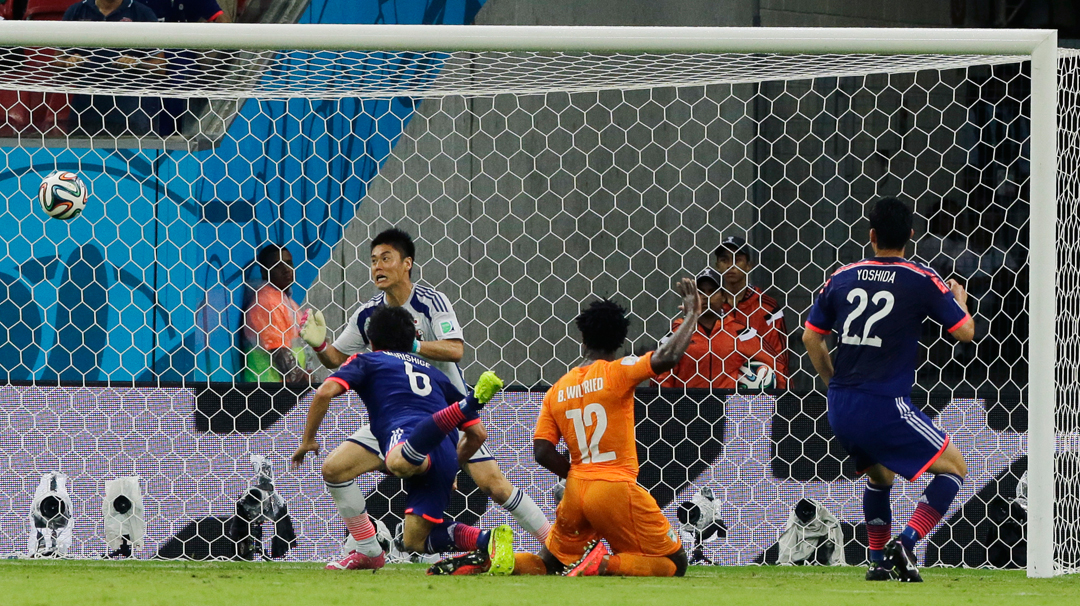
The late, late, late kick-off saw what could be considered the first knockout match of the World Cup: a straight shootout between Ivory Coast and Japan, widely considered to be the two favourites for second spot in Group C.
It promised to be an action-packed, open game between two teams of different styles, and so it proved – although the pace of the game was very much slow, slow, quick, quick, slow.
Didier Drogba was left on the bench by Ivory Coast manager Sabri Lamouchi, who preferred Swansea's Wilfried Bony to spearhead a three-man attack between Gervinho and Salomon Kalou.
Japan set up in a 4-2-3-1 formation built to counter-attack, with the creative onus on playmaking pair Keisuke Honda and Shinji Kagawa.
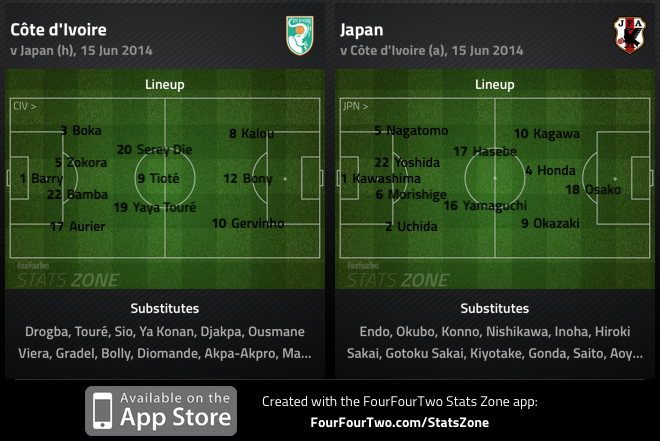
The Ivorians started the game more strongly, but it was Japan who took the lead after a quarter of an hour. Honda received the ball from Inter Milan's Yuto Nagatomo with his right foot before firing home a rocket of a shot with his left, after opposite right-back Serge Aurier had wandered out of position, much to the fury of English pundits. Aurier would later show them what he could do.
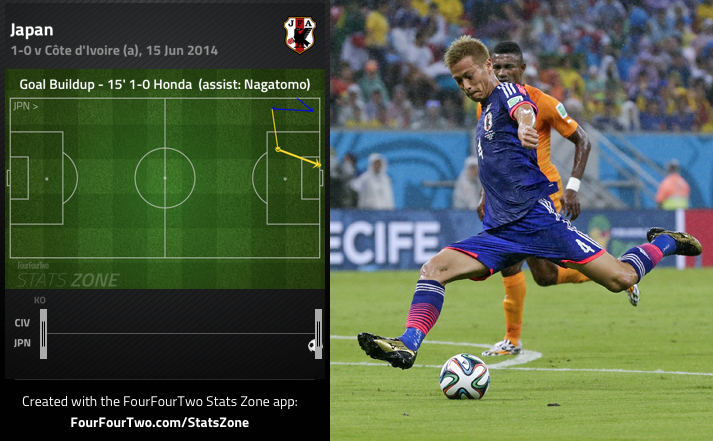
Japan began to take control of the match, right-back Atsuto Uchida forcing a save when he perhaps should have passed. Ivory Coast continued to let fly but until the 37th minute, every one of their shots was blocked or released from distance.
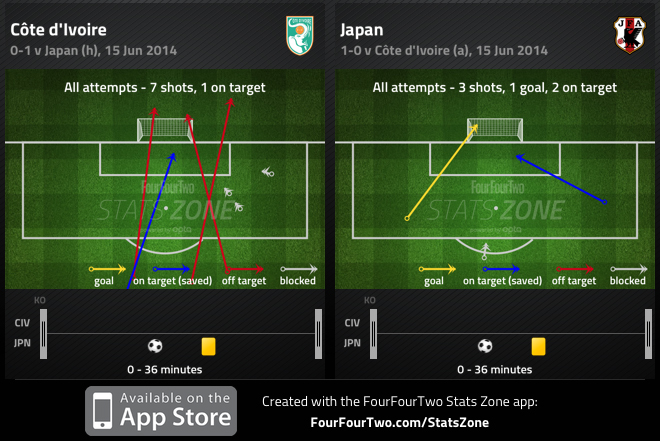
The Japanese team's plan was clearly to allow the opposition the ball before winning it back and breaking at speed (in 2010, they reached the second round with one of the lowest possession percentages in a World Cup). When the half-time whistle came, the Ivorians had completed nearly 100 more passes than Japan and had more than 60% of the ball, but trailed 1-0.
Get FourFourTwo Newsletter
The best features, fun and footballing quizzes, straight to your inbox every week.
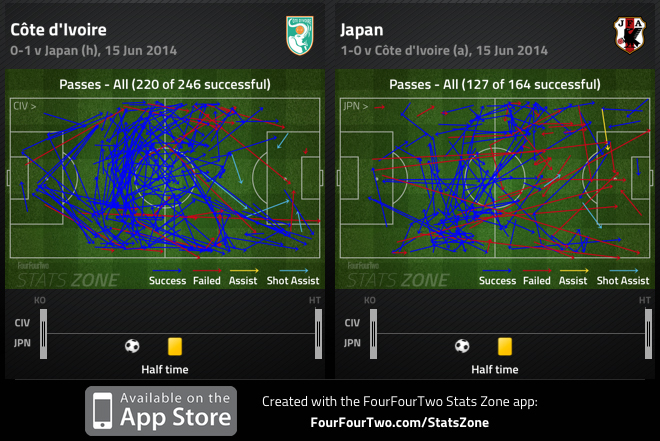
For their part, Serey Die was playing the role of passmaster in midfield while Yaya Toure carried the ball further forward. Die completed all 30 of his passes before the oranges, while Yaya Toure topped the chart for passes in the attacking third, also creating 2 chances.
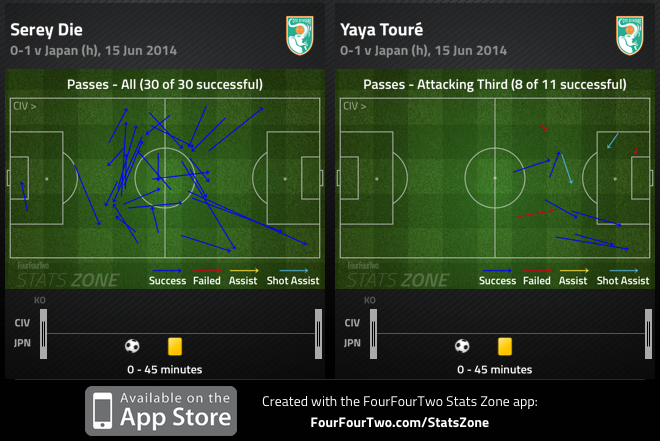
Japan continued to lead until just after the hour mark, when the introduction of Drogba sparked their opponents into life. Ivory Coast essentially went 4-2-4 and within minutes of his arrival, they had scored 2 goals in 99 seconds, and virtually identical goals at that. The much-maligned Aurier put in 2 near-post crosses that were headed home by Bony and then Gervinho (the Japanese keeper Eiji Kawashima at fault for not saving the latter effort).
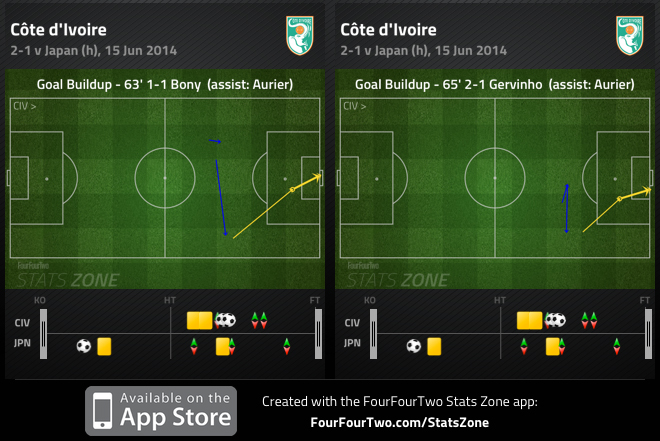
It's perhaps not a coincidence that this success down the right-hand side came after Japan manager Alberto Zaccheroni replaced Makoto Hasebe with Yasuhito Endo. Ivory Coast were patently focusing their passing down the right and Hasebe had led the interceptions chart before his removal, helping out his left-back from midfield.
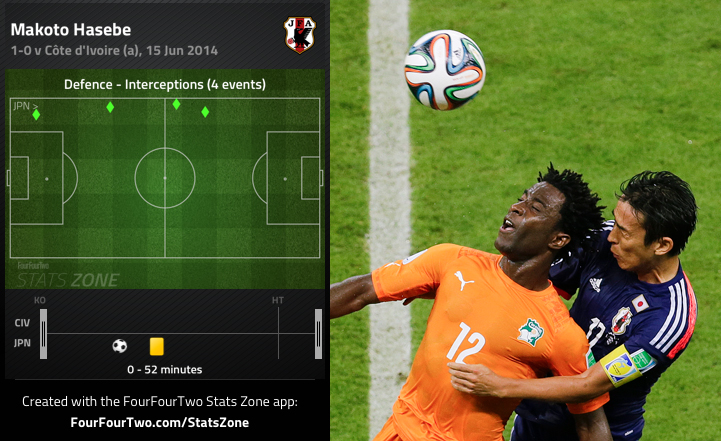
As the match wore on and Japan searched for an equaliser, Ivory Coast continued to have chances of their own. At the 80-minute mark, they'd created 13 scoring opportunities across the tie to Japan's 5.
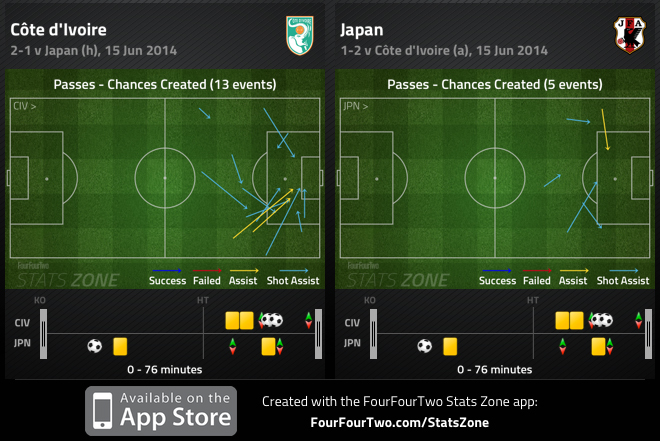
The African side were able to hold on to their 2-1 lead, which puts them in a strong position in Group C. Aurier was key: the 21-year-old may have gone missing for Japan's early opener but not only did he provide the crosses for both Ivorian goals – his first assists for his country – but he led the field in both ball recoveries and interceptions, winning back possession time and time again.
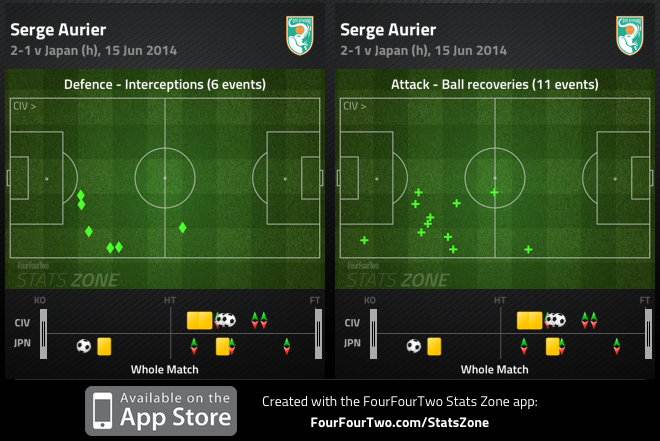
Japan weren't toothless as such but lacked the attacking productivity their defensive work deserved, and will now find it hard to progress from the group. Interestingly, their leading pass combination in the match – and the joint-leading combination across both teams – wasn't a centre-back pairing or duo linking defence and midfield, as is often the case, but passes between their two must creative forces, Kagawa and Honda, evidently trying to take on attacking responsibility themselves.
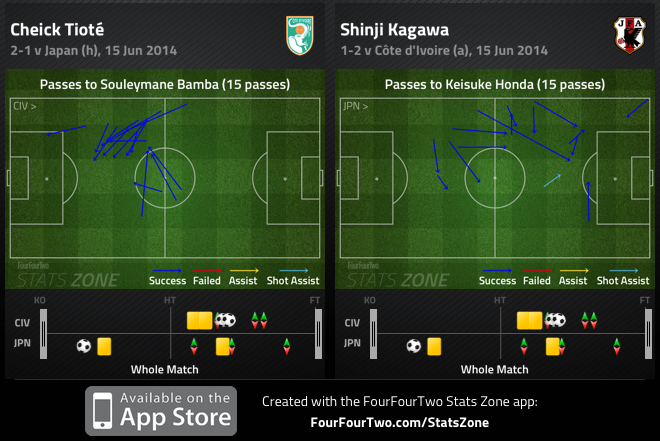
One final note of interest: Japan were expected to lose the aerial contest to the physically stronger Ivorians. Yet they actually edged the battle, winning more than half of their aerial duels – only to lose the match to 2 headed goals. Oops.
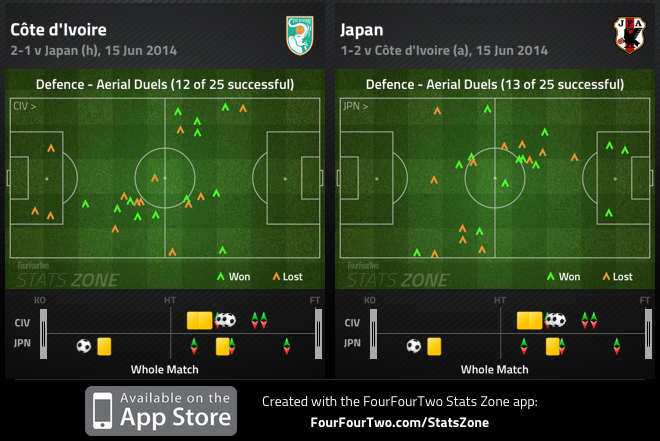
Facts and figures
- Keisuke Honda has had a direct involvement in 4 of Japan’s last 5 World Cup finals goals (3 goals, 1 assist).
- Honda is the first Japanese player to score at 2 separate World Cups.
- Honda, who also opened Japan’s account in the 2010 tournament in South Africa, became Japan’s leading goalscorer at World Cups (3).
- 7 of Ivory Coast’s 11 World Cup goals have come after the hour mark.
- 99 seconds separated Ivory Coast’s 2 goals, making it the fastest double strike in the 2014 tournament so far.
- Both teams have netted in 5 of Cote d’Ivoire’s 7 World Cup matches.
- Serge Aurier is the second Ivory Coast player to provide 2 assists in a single World Cup game, Arthur Boka also managed this against North Korea in 2010.
- Ivory Coast had 3 times many attempts (21) as Japan (7) in this game.
- Didier Drogba has had 18 shots at World Cup finals, but just 3 have been on target.
- This game ended Japan’s 100% record (P2 W2) against African opposition at the World Cup.
- Ivory Coast came from behind to win in a World Cup finals match for the second time, becoming the first African side to do so twice.
- This was the 4th comeback win in 8 games at the 2014 tournament, as many as in the whole of World Cup 2010.
Analyse Ivory Coast 2-1 Japan yourself using Stats Zone
Huw was on the FourFourTwo staff from 2009 to 2015, ultimately as the magazine's Managing Editor, before becoming a freelancer and moving to Wales. As a writer, editor and tragic statto, he still contributes regularly to FFT in print and online, though as a match-going #WalesAway fan, he left a small chunk of his brain on one of many bus journeys across France in 2016.
